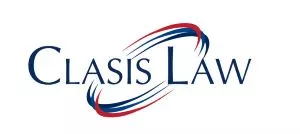Whether the substantive claims of the party under the Contract are barred by limitation if the party fails to take steps to constitute the Arbitral Tribunal within its stipulated period?
Introduction:
Kidde India Ltd. ("Appellant") filed an Appeal1 before the Division Bench of the Hon'ble High Court of Delhi ("High Court") challenging the order dated March 12, 2019 ("Impugned Order") passed by the Learned Single Judge of the Hon'ble High Court ("Ld. Single Judge") thereby setting aside the arbitral award dated December 09, 2008 ("Impugned Award") on the ground that the claims made by Appellant were barred by limitation.
Facts:
- M/s. Vijay Machinery Store i.e. the predecessor in interest of the Appellant had submitted a bid for work for the installation of fire protection systems for Ramagundum, Super Thermal Power Plant, Stage I. The bid was awarded by the National Thermal Power Corporation ("Respondent") in favour of the predecessor of the Appellant on February 18, 1982 and work order was issued on March 24, 1982.
- Thereafter, the name of the predecessor of Appellant was changed multiple times and was finally named as Kiddle India Ltd. The Appellant raised invoices for extra work carried out by them and on March 06, 1989 after exchanging various communications, the final bill was raised. Subsequently, disputes arose between the Appellant and the Respondent.
- The Appellant invoked arbitration vide letter dated December 09, 1989 ("1st Invocation Letter") and nominated an arbitrator. The Respondent claimed that it did not receive the 1st Invocation Letter and hence it did not respond to the same. However, later the parties entered into negotiation to settle the claims.
- As the negotiations failed, the Appellant issued another letter dated May 10, 1994 ("2nd Invocation Letter") thereby requesting the Respondent to nominate an arbitrator. It was clarified in the 2nd Invocation Letter that the said 1st Invocation Letter should be treated as the first invocation of the arbitration agreement.
- As the Respondent failed to take any steps to appoint an arbitrator, the Appellant approached the Institute of Engineers, who appointed Respondent's nominee arbitrator and the presiding arbitrator on June 02, 1995.
- After conducting the entire arbitration proceedings, the Arbitral Tribunal passed the Impugned Award whereby some of the claims of the Appellant were allowed and an aggregate amount of Rs. 1,12,36,762 was awarded to the Appellant.
- The Appellant filed an application for making the Impugned Award the Rule of Court. However, the Arbitral Tribunal, suo moto, filed the same before the Ld. Single Judge.
- The Ld. Single Judge set aside the Impugned Award on the grounds that the claims of the Appellant were barred by limitation as the Appellant failed to approach the appointing authority within the stipulated period of sixty days.
- Thus, the Appellant preferred an Appeal before the Division Bench of the Hon'ble Court to set aside the order passed by the Ld. Single Judge.
Observations:
- Section 37 (3) of the Arbitration and Conciliation Act, 1996 ("Act"), provides that when one party serves notice regarding the commencement of the arbitration to other party or to other person or to the designated person in the agreement, the arbitration shall be deemed to be commenced, for the purpose of calculating the limitation period.
- Further, as per Section 21 of the Act, the Arbitral proceedings in respect of the dispute would also be deemed to be commenced on the date on which the request made for referring the dispute to arbitration is received by the respondent. Therefore, the question of whether the claims are barred by limitation shall be determined with reference to the date on which the arbitral proceedings are deemed to be commenced either in terms of Section 37 (3) or Section 21 of the Act.
- In the present case, it was the case of the Appellant that they had invoked arbitration vide letter dated December 09, 1989, however, the same was not received by Respondent. The Respondent had first received the notice invoking the arbitration on May 10, 1994. Therefore, the arbitration was invoked on May 10, 1994.
- With respect to the contention of the Respondent that the claim of the Appellants was barred by limitation because the Appellant failed to approach the adjudicating authority within the period of sixty days for constitution of the Arbitral Tribunal was rejected by the Hon'ble Division Bench. The Hon'ble Division Bench further observed that if the party who invokes arbitration and does not take steps for constitution of the Arbitral Tribunal within the period of limitation, its right to seek any remedy would be foreclosed. However, the same shall not affect the claims of the parties.
- The Hon'ble Division Bench relied upon the judgment in the matter of Bombay Dyeing & Manufacturing Co. Ltd. vs State of Bombay & Ors.2 wherein it was held that "the statute of limitations bars recourse for remedies to court; it does not extinguish the obligations". Further, the Hon'ble Division Bench also referred to the judgment in the matter of Bharat Sanchar Nigam Limited & Anr. vs Nortel Networks India Private Limited3 wherein it was held that the period of limitation for filing a petition seeking appointment of an arbitrator cannot be confused or conflated with the period of limitation applicable to the substantive claims relating to the underlying commercial agreement.
- The Appellants had raised the final bill on March 06, 1989 and thereafter negotiations took place between the parties, but as concluded, the arbitration was invoked only on May 10, 1994. Even though a lot of time was spent on negotiations, the Hon'ble Division Bench observed that unilaterally issuing communications for negotiations and seeking settlement of the claims shall not extend the period of limitation. Thus, the period of negotiation between March 06, 1989 and May 10, 1994 would not be excluded while calculating the period of limitation.
- Therefore, the ground taken by the Ld. Single Judge for setting aside the Impugned Award that the claims of the Appellant were barred by limitation because the Appellant failed to constitute the Arbitral Tribunal within the stipulated period was untenable. Instead, the claim of the Appellant itself was barred by limitation as the arbitration was invoked on May 10, 1994.
Conclusion:
The Hon'ble Division Bench held that delay in taking steps to constitute an Arbitral Tribunal shall not render the party's substantive claims under the Contract barred by limitation. In the present case, as the claims of Appellant were barred by limitation, the Hon'ble Division Bench held that the Impugned Award was erroneous.
Footnotes
1 FAO (OS) (COMM) 361 of 2019
2 1958 SCR 1122
3 (2021) 5 SCC 738
The content of this article is intended to provide a general guide to the subject matter. Specialist advice should be sought about your specific circumstances.


